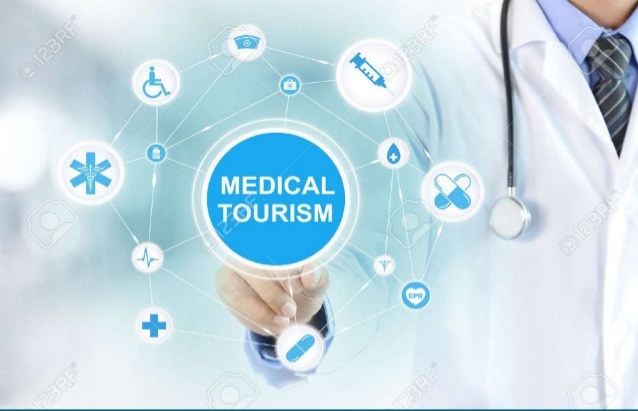WHAT IS MEDICAL TOURISM?
WHAT IS MEDICAL TOURISM?
Medical tourism (also known as medical travel or global healthcare) is the process in which a patient travels to another destination for medical or health and wellness services. Oftentimes these services can take the form of a dental treatment, knee surgery, health check-up or even a trip to a wellness spa. The term medical tourism may sound strange and exotic to some people; but in fact it is a rapidly growing phenomenon spurred on by an increasingly empowered patient base searching for quality, affordability, availability, and accessibility in healthcare.
Some people have the erroneous impression that patients are flying for open heart surgery to a dilapidated jungle clinic in some third world country - followed by bungee jumping. The opposite is true. Most patients are receiving care in high-end hospitals or clinics located in major urban centers, and will plan their trip to allow enough time for a prudent recuperation period before heading home.
The term medical tourism is often used in the context of patients traveling abroad for medical care to countries such as Mexico, Costa Rica, India, Thailand and Singapore - and this is certainly true. However, not all medical tourism is offshore based.
Medical tourism (also known as medical travel or global healthcare) is the process in which a patient travels to another destination for medical or health and wellness services. Oftentimes these services can take the form of a dental treatment, knee surgery, health check-up or even a trip to a wellness spa. The term medical tourism may sound strange and exotic to some people; but in fact it is a rapidly growing phenomenon spurred on by an increasingly empowered patient base searching for quality, affordability, availability, and accessibility in healthcare.
Some people have the erroneous impression that patients are flying for open heart surgery to a dilapidated jungle clinic in some third world country - followed by bungee jumping. The opposite is true. Most patients are receiving care in high-end hospitals or clinics located in major urban centers, and will plan their trip to allow enough time for a prudent recuperation period before heading home.
The term medical tourism is often used in the context of patients traveling abroad for medical care to countries such as Mexico, Costa Rica, India, Thailand and Singapore - and this is certainly true. However, not all medical tourism is offshore based.
DOMESTIC MEDICAL TOURISM
Domestic medical tourism – whereby individuals or employees travel across the country for medical care – has been growing steadily over the past few years. Although driven in part by individuals seeking low cost surgeries, the trend toward domestic medical tourism is being led by employers and insurers whose primary focus is quality.
Typically, an employer will contract directly with high quality centers of excellence. These are hospitals that specialize in certain procedures and can therefore offer better outcomes at a lower price than can be found locally. By steering workers to facilities with high-quality care and lower prices, employers can reduce their costs 20% to 40% — more than enough to cover the travel expenses. To encourage workers to use the program, employers often waive deductibles and cover their travel and hotel costs.
Employers with domestic travel programs save money in part by negotiating a single rate, which includes fees for surgeons, anesthesiologists and all medical care up until the patient is discharged. But there are other benefits. Referring employees to a center of excellence has also been shown to reduce medical complications, surgical reinterventions and recovery times, allowing employees to return to work quicker. Hospitals benefit by getting paid up front and increasing patient volume.
Although domestic medical tourism is still only a small slice of the medical tourism pie, its recent implementation by several high profile companies can only help its growth in the coming years.
Domestic medical tourism – whereby individuals or employees travel across the country for medical care – has been growing steadily over the past few years. Although driven in part by individuals seeking low cost surgeries, the trend toward domestic medical tourism is being led by employers and insurers whose primary focus is quality.
Typically, an employer will contract directly with high quality centers of excellence. These are hospitals that specialize in certain procedures and can therefore offer better outcomes at a lower price than can be found locally. By steering workers to facilities with high-quality care and lower prices, employers can reduce their costs 20% to 40% — more than enough to cover the travel expenses. To encourage workers to use the program, employers often waive deductibles and cover their travel and hotel costs.
Employers with domestic travel programs save money in part by negotiating a single rate, which includes fees for surgeons, anesthesiologists and all medical care up until the patient is discharged. But there are other benefits. Referring employees to a center of excellence has also been shown to reduce medical complications, surgical reinterventions and recovery times, allowing employees to return to work quicker. Hospitals benefit by getting paid up front and increasing patient volume.
Although domestic medical tourism is still only a small slice of the medical tourism pie, its recent implementation by several high profile companies can only help its growth in the coming years.



Comments
Post a Comment